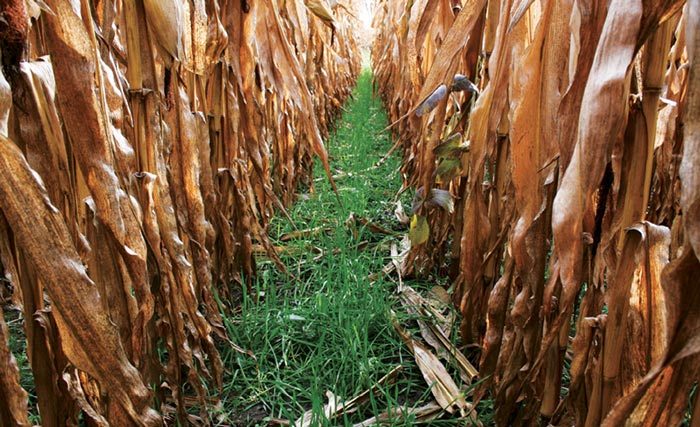No-Till Farmer
Get full access NOW to the most comprehensive, powerful and easy-to-use online resource for no-tillage practices. Just one good idea will pay for your subscription hundreds of times over.

In a recently concluded 3-year study at Michigan State University Extension, researchers weighed the functionality and marketability of harvesting corn stover in corn-on-corn and corn-on-soybeans rotations.
One of the study’s lead authors, Extension wheat specialist Dennis Pennington, says economics will drive decisions on harvesting corn stover, as he elaborates on the Michigan Corn Stover Project and its ramifications for no-till farmers.
“The data from our Michigan study will relate in areas of the Midwest with similar soil types and rainfall, approximately 31-33 inches per year,” he says, “Access to markets, cellulosic ethanol, cattle feeding and bedding, are required before a farmer should even consider removing stover.”
Since there are no cellulosic ethanol plants in Michigan, for example, stover must compete with other forage sources for cattle feed, Pennington says.
“In years with high forage yields and adequate supply of dry hay, for example, corn stover may not be able to compete for market share. In years with scarce forage supply, corn stover can play a significant role for beef cattle diets by reducing feed costs compared with traditional forage sources,” he says.
The value of corn stover depends on its end use, and on the price and availability of other…